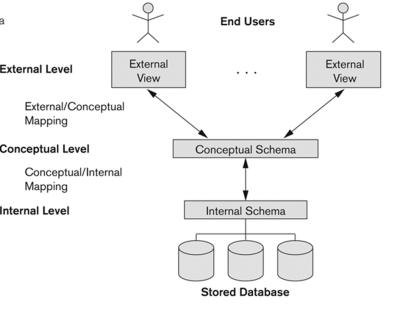Data independence refers to the ability to modify the structure or organization of a database system without affecting the way users or applications interact with the data. It allows for changes to be made at one level of the database system without requiring corresponding changes at other levels.
Data independence provides flexibility and simplifies the management of databases. It allows database administrators to make modifications or improvements to the database system without disrupting the users’ access or requiring changes to be made in the applications that depend on the data.
Type of Data Independence
- Physical Data Independence
- Logical Data Independence

Physical Data Independence
Physical data independence enables changes in the physical storage of the database without affecting the external and conceptual schemas.
Modifications to the way data is stored, such as adding new indexes, changing storage formats, or reorganizing files, can be made without impacting the way users or applications view or access the data.
For example, we can change the underlying hard disk system or switch to a different storage technology, and the users will not be affected as long as the external and conceptual schemas remain the same.
Logical Data Independence
Logical data independence allows for changes in the logical structure or organization of the database without affecting the external schema or the applications using the database.
Modifications to the conceptual schema, such as adding or removing tables, changing relationships between tables, or altering attributes, can be made without impacting the way users or applications perceive the data
For Example, we can add new tables or modify existing ones, and the applications will still function properly as long as the external schema remains unchanged.
Read More: Architecture of Database Management System

